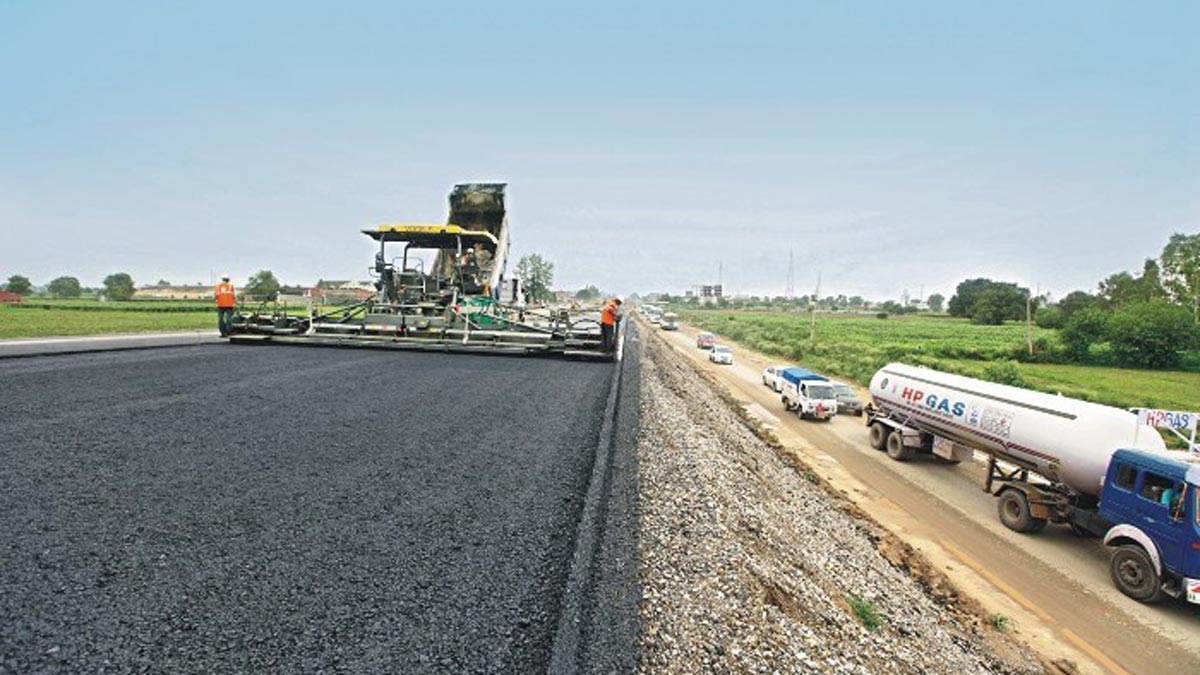- FEC Approves N35.94bn Road Contracts in Six States
The Federal Executive Council has approved road contracts worth N35.944bn in six states of the federation, the Federal Ministry of Power, Works and Housing announced on Sunday.
It was learnt that the latest award brought to a total of 16 roads which the council had approved in recent times, as the FMPWH stated that this was part of the Federal Government’s commitment to developing the nation’s road network in Nigeria’s six geopolitical zones.
About three weeks ago, the council approved the award of N169.74bn contracts for the construction and rehabilitation of 10 roads across the country.
The ministry stated that the beneficiary states in the latest approvals during the last FEC meeting include Kebbi, Zamfara states, where a N3.813bn contract was approved for the rehabilitation of BirninYauri-Rijau, Magajiya to Daki-Takwas Road; Akwa Ibom State, where a N1.1bn contract was approved for the construction of Atan Ikot Okoro Road with a bridge at Essien Udim Local Government Area; and Ebonyi State, where a N3.071bn contract was approved for the reconstruction of Oso-Owutu Road.
For Benue State, a contract of N27.3bn was approved for the rehabilitation of Makurdi-Naka-Adoka Road Phase 1.
The other approval was for Kano State where an augmentation sum of N676.2m was approved for the completion of the construction of Wudil-Utai-Achika-Darki-Jegaware Road, whose contract was first approved in 2012 by FEC at an initial sum of N4.4bn.
The approvals, which were a sequel to two memoranda submitted to the council by the Minister of Power, Works and Housing, Babatunde Fashola, showed that the Makurdi-Naka-Adoka Road Phase 1 in Benue State would be rehabilitated by Messrs Gilmor Engineering Nigeria Limited in 42 months.
The Kebbi/Zamfara road will be handled by Messrs H&M Nigeria Limited in 12 months; that of Akwa Ibom State is to be constructed by Messrs Raycon and Company Nigeria Limited in 28 months, while that of Ebonyi is awarded to Messrs Sabtech Towers Nigeria Limited with a completion date of 18 months.
According to the second memorandum, the completion of work on Sudil-Utai-Acika-Darki-Jegaware Road in Kano State, the contract for which was first approved by FEC on November 14, 2012, for N4, 393,730,153.20, involved the rehabilitation of approximately 23 kilometres single carriageway road and construction of a bridge with a completion period of 24 months by by Messrs Birak Engineering and Company Limited.
But completion was, however, stalled due to limited budgetary allocations in the preceding fiscal years leading to the current approval of additional N676, 177,886.40.
This brings the total cost to N5,067,908,050.30, while an additional six months had been added to its initial completion period of 24 months after all due processes were complied with.
The ministry stated that while the rehabilitation of the 122km long Makurdi-Naka-Adoka Phase 1 Road in Benue State involved site clearing and earthworks, provision of culverts and drains, among others, the rehabilitation of the 13km Birnin-Rijau, Magajiya to Daki-Takwas Road in Kebbi/Zamfara involved the construction of a bridge and the provision of culverts and drains, among others.
It said the Atan Ikot Okoro Road involved the construction of a bridge and a 4.5km approach road, among others, while the 9km Oso-Owutu Road in Ebonyi State involved site clearing and earthworks and construction of culverts and drains, among others.
In terms of creating job opportunities, the FMPWH said the rehabilitation of Makurdi-Naka-Adoka Phase 1 Road in Benue State would generate between 150 to 200 direct jobs with 90 per cent of Nigerians as direct members of staff.
It stated that the rehabilitation of BirninYauri-Rijau, Magajiya to Daki-Takwas Road in Kebbi/Zamfara states would generate between 50 and 100 direct jobs with Nigerians taking all the jobs, adding that the Road in Akwa Ibom State would create 50 jobs for Nigerians alone, while the reconstruction of Oso-Owutu in Ebonyi State would generate between 50 to 120 direct jobs for over 90 per cent Nigerians.
On why he asked for approvals for the roads, Fashola stated that it was in order to achieve the Federal Government’s objective of improving transportation infrastructure.

 Billionaire Watch3 weeks ago
Billionaire Watch3 weeks ago
 Startups4 weeks ago
Startups4 weeks ago
 News4 weeks ago
News4 weeks ago
 News4 weeks ago
News4 weeks ago
 Bitcoin4 weeks ago
Bitcoin4 weeks ago
 Naira4 weeks ago
Naira4 weeks ago
 Forex3 weeks ago
Forex3 weeks ago
 Treasury Bills4 weeks ago
Treasury Bills4 weeks ago

























